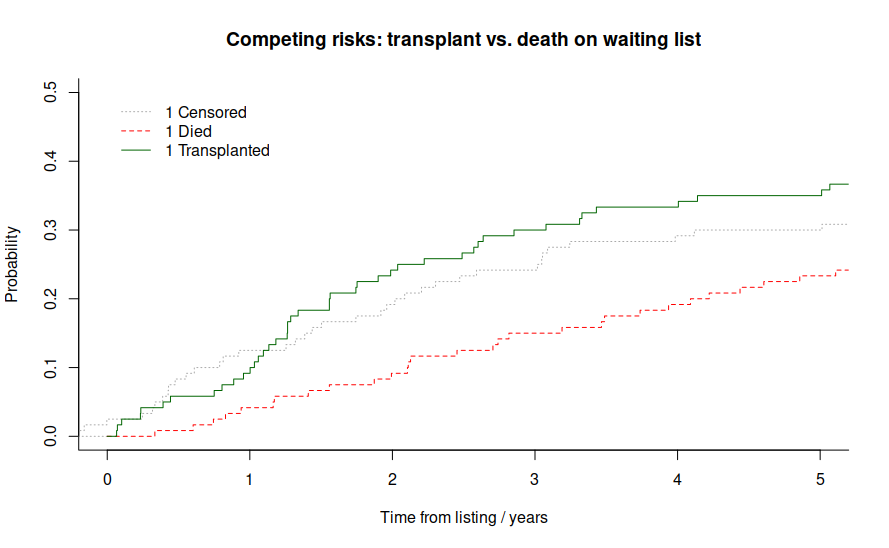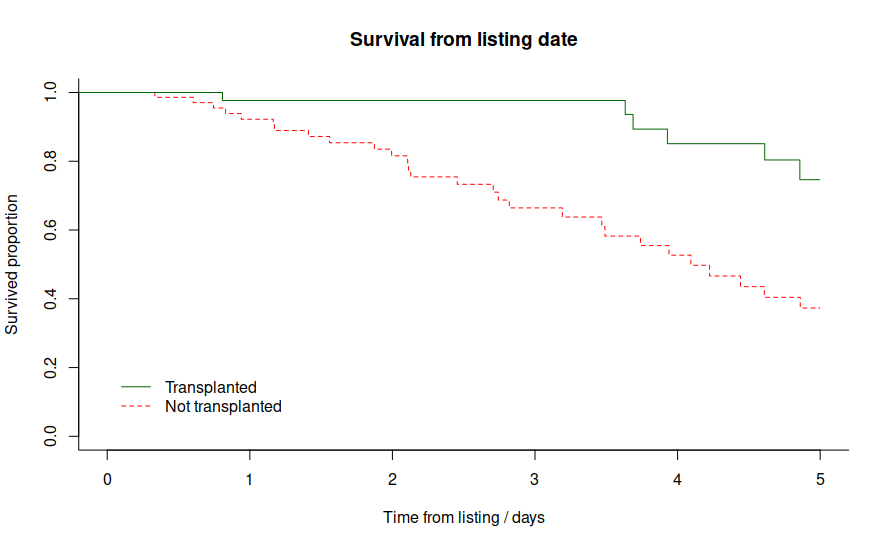
Outcomes for septuagenarians listed for renal transplant: a good option for many
Joanne Devlin1,2, John Asher1,2.
1Renal and Transplant Surgery, Queen Elizabeth University Hospital, NHSGGC, Glasgow, United Kingdom; 2ICAMS, University of Glasgow, Glasgow, United Kingdom
Introduction: Kidney transplantation improve survival in the vast majority of patients with end-stage renal failure, but this is contentious in patients over 70 years old, for whom it is widely perceived that there is quality-of-life benefit but not an overall survival benefit. Since the change in national kidney matching scheme was introduced, more patients over 70 are receiving transplants and the potential benefits for this group are worth re-examination.
Methods: Data were collected from 117 patients aged over 70 at the time of acceptance for the deceased donor transplant waiting list and patient survival compared from date of listing between the transplanted group and non-transplanted groups using both Kaplan-Meier and competing risks methods.
Results: 1 year survival was 98% in the transplanted group compared to 92% in the non-transplanted group. 5 year survival however reported significant differences, with 75% survival in the transplanted group versus 37% survival in the non-transplanted group. In the 5-year competing risks analysis, we observed that the probability of being transplanted is more likely than the risk of death on the waiting . Transplant survival, including death with functioning graft was compared for three age groups (under 50, 50-69 and over 70), and was relatively similar in all groups until year 2, when uncensored transplant survival probability in the over 70s dropped relative to the other groups. At 5 years, there was a 45% transplant survival probability compared to 87% and 76% in the under 50 and 50-70 age groups respectively.


Conclusions: Selected patients over 70 at the time of listing achieve a survival benefit from transplantation. With better access to transplantation in the new kidney offering scheme, transplantation is expected to be a more realistic outcome for older patients on the waiting list and age alone should not be a barrier to acceptance.

right-click to download
